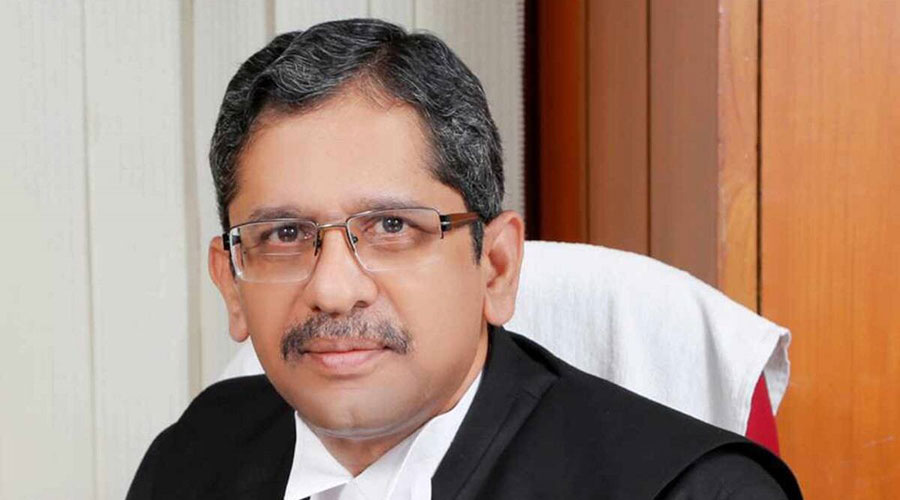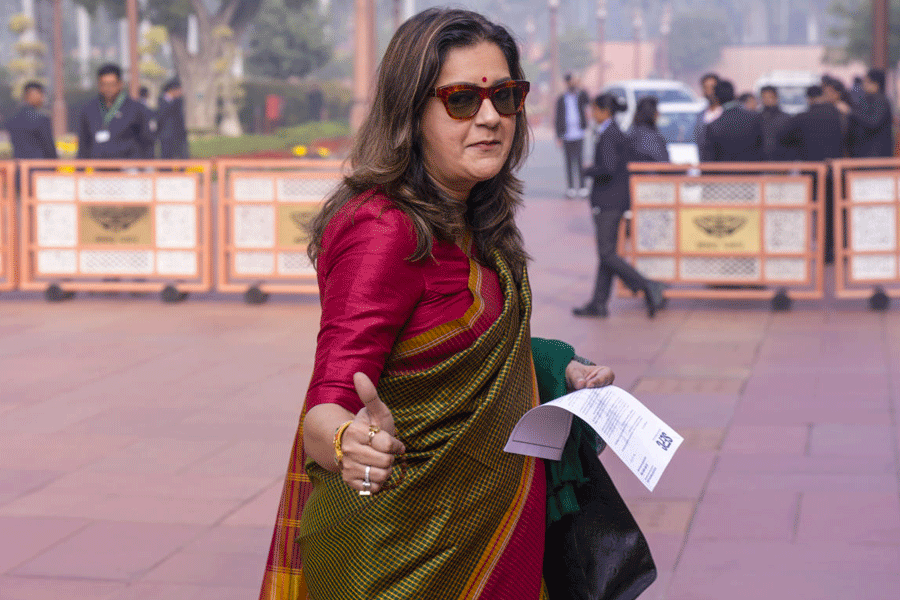Plug the gaps
Sir — The revelations by the Chief Justice of India, N.V. Ramana, bring to focus how one of the pillars of democracy — the judiciary — is prevented from functioning effectively owing to inadequate infrastructure (“Visible cracks”, Oct 27). Almost 20 per cent of the judicial officers in the country do not have proper courtrooms to sit in.
Discrimination against women is evident from the lack of basic facilities for them — 26 per cent of court premises have no separate toilets for women while 16 per cent have no toilets at all. Only 54 per cent courts have purified drinking water facilities. Although computerization is of paramount importance for speeding up work, only 27 per cent of courtrooms have computers on judges’ dais. In order to improve access to justice, good judicial infrastructure is a must. The failure to deliver timely justice affects India’s annual gross domestic product. There is an urgent need to rectify these deficiencies.
Venu G.S.,
Kollam, Kerala
Sir — The CJI must be credited for bringing to the fore sordid figures that underline the alarming lack of infrastructure in India’s courts at an event attended by several judges, the Maharashtra chief minister and even the Union law minister. The problems include a lack of toilets, drinking water, medical facilities, library, record rooms, computers on judges’ dias with videoconferencing facilities, and so on. The failure to provide timely justice is, in turn, costing the country as much as 9 per cent of the annual GDP.
The CJI advocated financial autonomy for the judiciary. A proposal has been sent to the law ministry for the establishment of the National Judicial Infrastructure Authority. It is hoped that improvements shall be made on this front.
Jahar Saha,
Calcutta
Sir — The ‘visible cracks’ in the judicial infrastructure highlighted by the CJI need to be looked into seriously and fast. The plight of the court premises across the country is akin to the situation in government schools. They must be upgraded in keeping with the prime minister’s vision of New India. It is heartening that the Union law minister has extended his support for a robust judiciary.
K. Nehru Patnaik,
Visakhapatnam
Sir — The CJI must be thanked for rightly advocating financial autonomy for the judiciary. This suggestion must be taken seriously if the gaps in the judicial system are to be plugged.
Even 74 years after Independence, the infrastructure of lower courts in almost every part of India is in bad shape. This affects the smooth functioning of the judiciary. The indifference of the government regarding this issue is palpable since little is being done to improve the situation. The Centre is spending crores on the construction of a new Parliament complex, but funds for new court buildings remain sparse.
Arun Gupta,
Calcutta
Sir — The list of inadequacies in judicial infrastructure in India is baffling. Now that light has been shed on the matter, one hopes for swift redressal of the problem.
Suravi Jaiswal,
Delhi
Stand together
Sir — In a shocking coup d’état, the Sudanese military arrested the country’s prime minister, Abdalla Hamdok, and some other politicians (“Sudan military dissolves civilian govt”, Oct 26). Soon after, it declared a state of emergency and dissolved the ruling Sovereign Council. Following the coup, international aid to Sudan has decreased significantly.
The people of Sudan have taken to the streets in the capital city of Khartoum to protest against the military takeover. The international community must come forward to help restore democracy.
Shubham Prajapati,
Ujjain
Sir — The recent military coup in Sudan is following a script that is eerily similar to those in countries that experienced Arab Spring movements at the turn of the last decade. In Egypt, for instance, the armed forces aided the removal of the incumbent president, Hosni Mubarak, and then oversaw a transitional period during which the country’s first democratic elections took place. However, within two years, the army seized power in a coup.
In Sudan, the government was overthrown in a military coup after prolonged protests two years ago. However, in spite of promising a civilian government after a short transitional period, the army has now taken over. International pressure is essential if Sudan is to emerge as a democracy. Otherwise, the people’s protests would have been in vain.
Mainak Pal,
Calcutta
Seasonal concern
Sir — Every year, fear for the safety of the Mullaperiyar dam surfaces during the rainy season. When the rain goes away, this fear, too, subsides. The chief minister of Kerala, Pinarayi Vijayan, has stated that there is nothing to fear about the dam. He has even warned of legal action against those who spread rumours about the safety of the dam.
However, this was not his opinion during the reign of the United Democratic Front. Back then, Vijayan led the agitation for the decommissioning of the dam from the front. Changing positions on dam safety has become a part of politics in Kerala.
K.A. Solaman,
Alappuzha, Kerala
Steep cost
Sir — Even in an age of shrinking personal income, chasing brand names remains a habit for many. A recent study has revealed that buying the base model of the new iPhone 13 will set the typical Indian wage-earner back by earnings worth some 720 working hours — the second-highest among the nations analysed. But this did not hinder pre-orders from more than 20 lakh Indians. Given the steady increase in unemployment in the country, one wonders if putting the amount in a retirement fund would not be a more judicious choice. Is trading future security away for a branded status symbol the best use of one’s savings?
Ishani Chanda,
Calcutta











